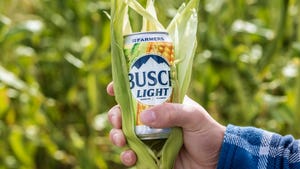One Packing Plant Closes – Another May Reopen
The next domino to fall in the battle of packing over-capacity tumbled in Nampa, ID, two weeks ago. According to various news sources, Calgary-based XL Foods, Inc. is closing its beef packing facility in Nampa. News out of Canada indicates XL also will shutter its Calgary plant, at least temporarily. XL also has a plant in Omaha that goes by Four Star Beef, Inc., which apparently will remain open.
April 18, 2011

The next domino to fall in the battle of packing over-capacity tumbled in Nampa, ID, two weeks ago. According to various news sources, Calgary-based XL Foods, Inc. is closing its beef packing facility in Nampa. News out of Canada indicates XL also will shutter its Calgary plant, at least temporarily. XL also has a plant in Omaha that goes by Four Star Beef, Inc., which apparently will remain open.
You might recall that XL purchased Lakeside Farm Industries, LLC from Tyson Foods, Inc. in February 2009. Lakeside is a diversified agribusiness; at the time of sale, it included cattle-feeding and packing facilities, fertilizer retailing and 5,000 acres under irrigation.
In the same vein, various news sources indicate a group of investors has purchased the former Iowa Quality Beef, LLC facility at Tama, IA, a facility that’s been idle since 2004.
With the fragility of the industry’s infrastructure in mind, it pays to consider comments made by a packer, a cattle feeder and a cow-calf producer in recent testimony before the House Ag Committee’s Subcommittee on Livestock, Dairy and Poultry. Ken Bull, Cargill vice president of cattle procurement, told legislators the opportunity for the domestic beef industry to capitalize on domestic and global growth revolves around efficiency, quality and consistency, as well as trade.
“All three of these themes have a common link – it is the critical relationship between the rancher, feeder and the packer. In order to find success, we have to bring the links closer together, not farther apart as some would like to see,” Bull said.
Specifically, Bull explained the proposed GIPSA rule that would dilute, or in effect prohibit, the use of alternative marketing arrangements (AMAs) represents the single greatest policy threat to the U.S. beef industry that he’s seen in his 32-year professional career.
“One of the most critical (aspects of the proposed rule) is a concept that would make it easier for parties to sue packers for price discrimination and jury-awarded damages in federal courts,” Bull explained. “This exact proposal has been ruled against by eight different federal appellate courts, and even considered for hearing by the Supreme Court – and rejected. Any final rule that includes these provisions will be beyond chilling in the marketplace.
“This same kind of law passed in the state of Missouri in the spring of 1999. Implemented May 29, 2001, the impact on producers was immediate and severe as packers overnight shifted to purchasing on only the most basic formulas – rather than value-added or premium programs. The law remained in effect for four short months until the legislature repealed it in a special legislative session. Some of the implications of the GIPSA proposal are virtually identical to the provisions of the Missouri law,” Bull said.
About the Author(s)
You May Also Like





